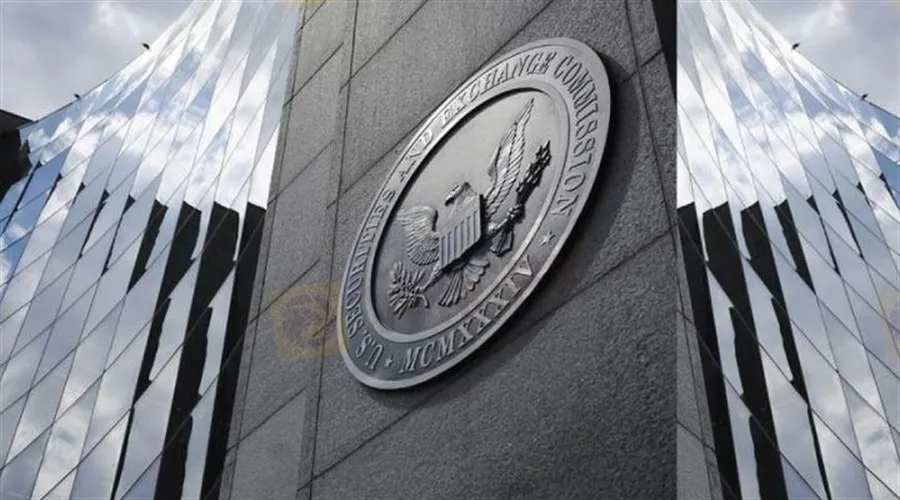简体中文
繁體中文
English
Pусский
日本語
ภาษาไทย
Tiếng Việt
Bahasa Indonesia
Español
हिन्दी
Filippiiniläinen
Français
Deutsch
Português
Türkçe
한국어
العربية
US SEC Charges 18 for Hacking Retail Brokerage Accounts to Buy Microcap Stocks
Abstract:The individuals gained over $1 million in illicit profit from the unauthorized purchases. The SEC described the cross-border scheme as 'brazen and sophisticated'.

On Monday, the United States Securities and Exchange Commission (SEC) charged 18 persons and entities for their involvement in a fraudulent scheme that involved hacking dozens of online retail brokerage accounts.
Take Advantage of the Biggest Financial Event in London. This year we have expanded to new verticals in Online Trading, Fintech, Digital Assets, Blockchain, and Payments.
The hack, which happened between late 2017 and early 2018, was allegedly coordinated by Rahim Mohamed based in Alberta, Canada.
Several other individuals within and outside the US participated in or benefited from the scheme, the SEC said.
The US regulator disclosed the details of the case on Monday in a press statement published on its website.
“The SECs complaint charges violations of the antifraud and beneficial ownership reporting provisions of the Securities Act of 1933 and the Securities Exchange Act of 1934 and names two relief defendants who received proceeds from the hacks,” the regulator said.
The regulator said the individuals made over $1 million in illicit profit by using at least 31 hacked accounts to buy microcap stocks of Lotus Bio-Technology Development Corp. (LBTD) and Good Gaming, Inc.
While LBTD is a biotechnology company that operates in the US and China, Good Gaming is an interactive entertainment company.
The SEC said the hackers made a profit by manipulating the price and trading volume of these firms' stocks.
“The unauthorized purchases allegedly enabled fraudsters, who already controlled large blocks of Lotus Bio-Techand Good Gaming stock, to sell their holdings at artificially high prices and reap more than $1 million in illicit proceeds.”
The SEC said its goal is to secure “the return of ill-gotten gains plus interest, penalties, bars and other equitable relief.”
‘Brazen and Sophisticated Scheme’
Additionally, the SEC fingered Davies Wong based in British Columbia, Canada, and Glenn Laken, based in Illinois, the United States, in the case.
Another individual based in British Columbia, Richard Tang, is said to be involved in the schemes involving the two companies.
According to the SEC, while Wong had the majority share in LBTD, Laken commanded the same in Good Gaming. And, they both allegedly cooperated with Mohammed in orchestrating the attack.
Speaking on the case, Gurbir Grewal, the Director of the SECs Division of Enforcement, urged investors to remain vigilant.
“The SEC remains committed to rooting out this type of wrongdoing. Investors should also take precautions, including choosing strong passwords, using different passwords for different accounts and using two-factor authentication when available,” Grewal said.
On her part, Nekia Jones, the Director of the SEC‘s Atlanta Regional Office, noted that the charges against the individuals prove the regulator’s ability to root out complex cross-border schemes.
“Our complaint details a brazen and sophisticated scheme, with hackers using international accounts and dummy account holders to hide their tracks,” Jones said.
Other Recent Cases
Meanwhile, the SEC at the beginning of this month charged four co-founders and seven other individuals before the United States District Court in the Northern District of Illinois for their involvement in a $300 million crypto pyramid scheme.
This case, too, had an international outlook with the co-founders being based in Russia, Georgia and Indonesia, as well as three promoters in the United States.
Last month, the securities market watchdog filed charges against nine people in three cases involving over $6.8 million.
Amit Bhardwaj, a former Chief Information Security Officer, Brijesh Goel, an investment banker, and Seth Markin, a former Federal Bureau of Investigation trainee, were involved in the cases.

Disclaimer:
The views in this article only represent the author's personal views, and do not constitute investment advice on this platform. This platform does not guarantee the accuracy, completeness and timeliness of the information in the article, and will not be liable for any loss caused by the use of or reliance on the information in the article.
Read more

Russia to Fully Ban Crypto Mining in 10 Regions Starting January 1, 2025
Starting from January 1, 2025, Russia will implement a comprehensive ban on cryptocurrency mining in 10 regions for a period of six years. The ban will remain in effect until March 15, 2031.

Why is there so much exposure against PrimeX Capital?
In recent months, PrimeX Capital, a Forex and CFD broker established in 2022, has become a subject of concern in the trading community. However, despite these enticing features, the broker's reputation has been severely tarnished by multiple complaints and a troubling lack of regulatory oversight.

The Hidden Checklist: Five Unconventional Steps to Vet Your Broker
Forex broker scams continue to evolve, employing new tactics to appear credible and mislead unsuspecting traders. Identifying these fraudulent schemes requires vigilance and strategies beyond the usual advice. Here are five effective methods to help traders assess the legitimacy of a forex broker and avoid potential pitfalls.

Doo Financial Obtains Licenses in BVI and Cayman Islands
Doo Financial, a subsidiary of Singapore-based Doo Group, has expanded its regulatory footprint by securing new offshore licenses from the British Virgin Islands Financial Services Commission (BVI FSC) and the Cayman Islands Monetary Authority (CIMA).
WikiFX Broker
Latest News
AIMS Broker Review
The Hidden Checklist: Five Unconventional Steps to Vet Your Broker
Russia to Fully Ban Crypto Mining in 10 Regions Starting January 1, 2025
YAMARKETS' Jingle Bells Christmas Offer!
Why is there so much exposure against PrimeX Capital?
MTrading’s 2025 "Welcome Bonus" is Here
Doo Financial Obtains Licenses in BVI and Cayman Islands
CFI’s New Initiative Aims to Promote Transparency in Trading
Currency Calculator



